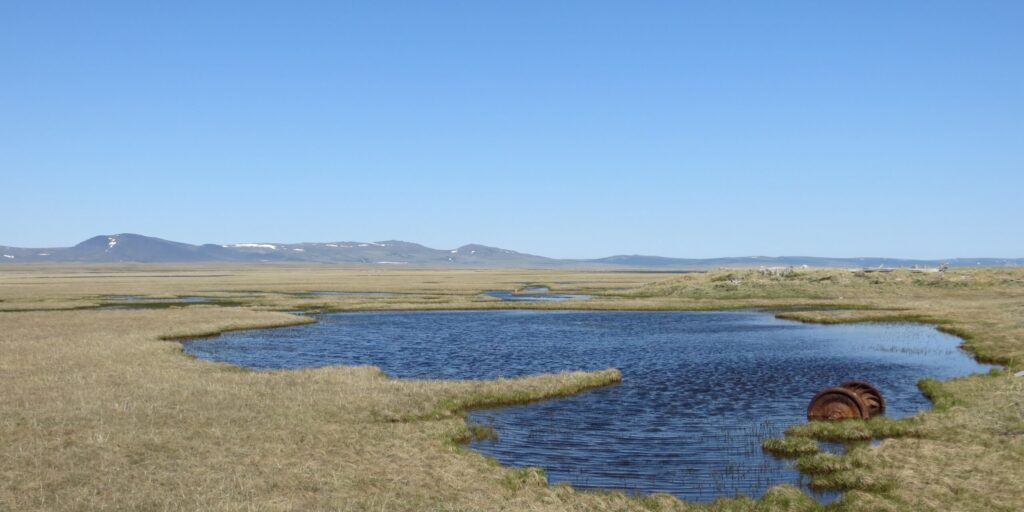What used to be a fast-growing community during the gold rush in the early 1900s, the Village of Solomon is now only inhabited seasonally with no year-round residents. Located about 30 miles east of Nome, this community now seeks to return to its former status as a city.
“Right now, our goal is to build infrastructure so that we can move back. So we are going to be a live city again.”
Deilah Johnson is the environmental coordinator for the Village of Solomon and writes their grants. In order to help sustain a growing community of 150 tribal members, the village site will need more energy sources.
Currently, Johnson says a diesel generator is the Village of Solomon’s only option; it powers the community’s bed and breakfast. This building also doubles as a community center for the tribal members who utilize the facility during the summer.
According to Johnson, the long-term goal is to become 100% dependent on renewable energy sources.
“We had installed a meteorological tower, which is 34 meters tall, out in Solomon. A lot of people have noticed the met tower when they’re driving out to Council or out in the country. That is collecting wind data so we can eventually set up solar and wind (power) out there for renewable energy and get off of our diesel generator.”
Johnson gave an update on Solomon’s progress during the Bering Strait Regional Energy Summit last week in Nome. Her presentation also focused on the Village’s recent adoption of the 2015 Paris Agreement, which the U.S. federal government chose not to support.
Amanda Toerdal is the energy development specialist for Kawerak, and she coordinated the week-long summit. She says Johnson’s presentations gave an example that the other 19 communities in the region could follow.
“I think all of our communities are working to get their own energy plans in place, and that’s the whole point of our program: to make sure the region has the resources they need to put strategic energy plans in place for each community and then for our region as a whole. So yes, I think it was very helpful and inspiring.”
With technical assistance and support from Kawerak, the Village of Solomon is currently in the initial data-collecting phase for their energy development plans.
Going forward, though, Johnson acknowledges there will be challenges for the community, like finding a way to have year-round access to Solomon using the existing road system or through another avenue.

Johnson says, at this point, she is excited for more progress to be made and is proud that she can advocate for her community during events like the Energy Summit in Nome.
“Climate change is real. It’s a very serious thing, and in the Bering Strait region, we are the most vulnerable communities in the U.S. We should all be the advocates for our communities and our relatives, our younger generations, so I will live and breathe that forever.”
If your community or tribal organization is interested in developing an energy project like the Village of Solomon, contact Kawerak’s energy program.
Image at top: The Solomon River area along the Nome-Council Highway. Photo: Maddie Winchester, KNOM file.




